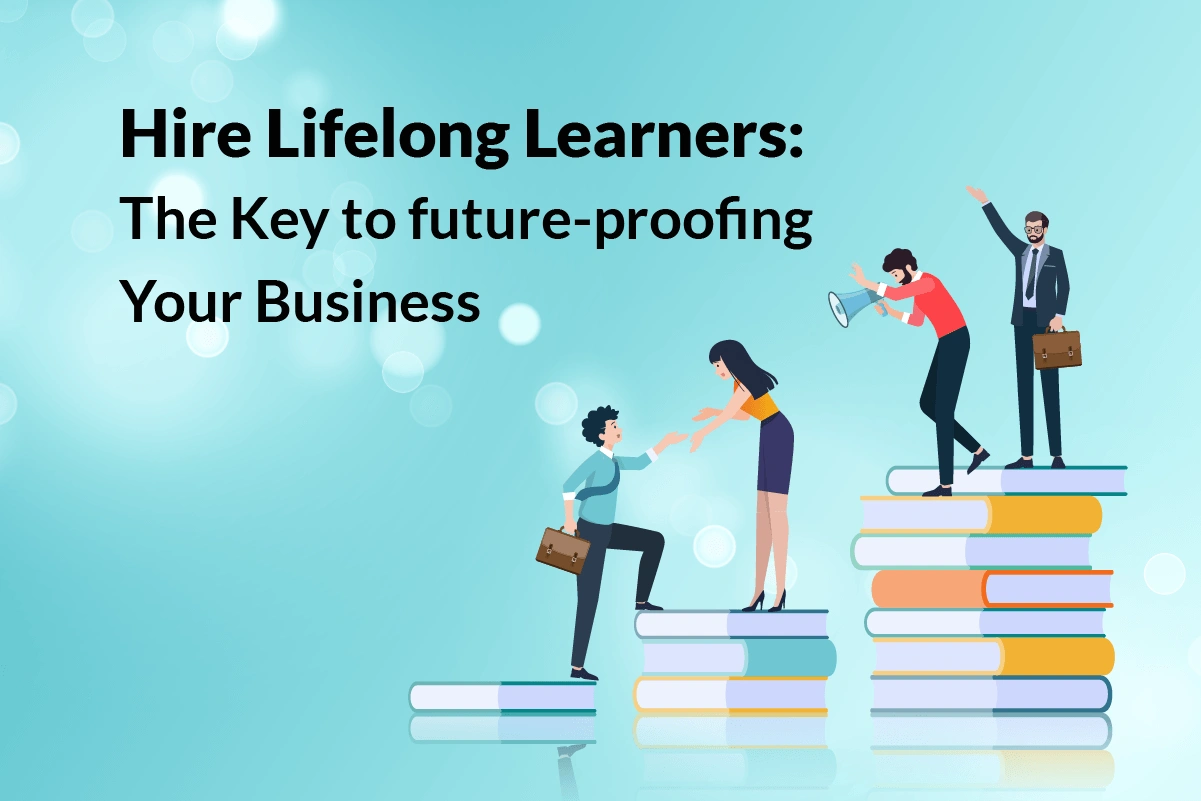As an employer, you should know that lifelong learners can bring significant benefits to your business. However, identifying these types of employees can be a daunting task. In this article, we will help you understand what lifelong learners are, what they are looking for, and provide you with tips on how to identify them in an interview. Additionally, we will introduce you to our solution, Boulo, which can help you find the right candidate for your business needs.
Who Can Be Identified as Lifelong Learners?
Lifelong learners are individuals who have a continuous desire to learn and improve themselves. They are not content with the knowledge they currently possess and always seek out new information and skills to enhance their personal and professional lives. Look out for these key characteristics to identify a lifelong learner:
Volunt Learners
Intrinsic motivation drives lifelong learners. They learn because they want to, not because it is required of them. They have a strong desire to learn and are frequently curious about the world around them. Look for volunteer experience on their resume or recently completed courses.
Self-motivated or Self-initiated
Lifelong learners take the initiative to seek out new learning opportunities. They are not reliant on external sources to provide them with knowledge but instead actively seek it out themselves. Lifelong learners take control of their learning and seek out instruction when necessary. They are not afraid to ask questions and are always looking for ways to improve.
Doesn’t Always Require A Cost
While lifelong learners may invest in formal education, they also take advantage of free resources like online courses, webinars, and podcasts. They are resourceful and find creative ways to learn.
Lifelong learners are motivated by their own interests and personal development. They are not motivated by external factors such as job promotions or pay raises.
Often Informally Educated
Lifelong learners do not limit themselves to traditional education environments. They learn through a variety of informal sources such as books, videos, and personal experiences.

What Lifelong Learners Are Looking For?
To attract and retain lifelong learners, it’s essential to understand what they are looking for. Here are some specific goals of lifelong learners related to their life, career, and social connection:
- Personal Growth and Development: Lifelong learners strive to improve themselves continuously, both personally and professionally. They seek out new knowledge and skills to develop a deeper understanding of the world around them.
- Career Advancement: Lifelong learners are often looking to advance their careers. They seek out new skills and knowledge that can help them excel in their current position, get a promotion or move into a new role.
- Social Connection: Lifelong learners often value social connections with like-minded individuals. They seek out opportunities to connect with others who share their passion for learning and personal growth.
Tips to Help Your Business Identify Lifelong Learners in An Interview
Now that you understand what lifelong learners are and what they are looking for, it’s time to identify them in an interview.

Ask Open-ended Questions
Instead of asking yes or no questions, ask open-ended questions that allow the candidate to share their experiences and knowledge.
Look for Curiosity and A Thirst for Knowledge
Ask the candidate about their interests and hobbies outside of work. Do they spend time reading books, listening to podcasts, or attending seminars related to their industry? If so, this is a good indication that they are committed to ongoing learning and development. Lifelong learners are genuinely interested in expanding their knowledge, not just in their field of expertise but in other areas as well.
Assess Their Willingness to Take on Challenges
Lifelong learners are not afraid to take on new challenges and step out of their comfort zones. During the interview process, ask the candidate about a time when they faced a challenge and how they overcame it. Look for specific examples of how they approached the problem, what steps they took to address it, and what they learned from the experience.
Look for Adaptability and Flexibility
During the interview, ask the candidate about a time when they had to adapt to a new situation or change their approach. Look for specific examples of how they were able to adjust their thinking or actions to meet the new demands.
Assess Their Problem-solving Skills
Problem-solving is a critical skill for any employee, but it’s especially important for lifelong learners. During the interview, ask the candidate to describe a complex problem they faced in their previous role and how they solved it.
Assess Their Self-awareness and Ability to Reflect
Lifelong learners are constantly evaluating their own performance and seeking feedback from others. Look for specific examples of how they used that feedback to improve their skills and knowledge.

Challenges When Hiring The lifelong learners
When it comes to hiring lifelong learners, there are certainly some challenges that companies may face.
Identify Lifelong Learners
One of the biggest challenges is simply identifying candidates who possess the characteristics of a lifelong learner. As mentioned earlier, looking for clues on their resume and asking the right questions during the interview process can help, but it’s not foolproof. One solution is to incorporate assessments into your hiring process that can help identify candidates with a growth mindset and a commitment to learning.

Assess the ROI of Learning Programs
Once you’ve hired lifelong learners, it’s important to offer them opportunities for growth and development. However, it can be challenging to assess the return on investment (ROI) of these programs. One solution is to set clear goals and metrics for learning programs, such as increased productivity, improved customer satisfaction, or reduced turnover. By tracking these metrics, you can better evaluate the impact of your learning initiatives.
Balance Learning with Workload
Another challenge is finding a balance between encouraging learning and ensuring that employees are able to meet their job responsibilities. One solution is to offer flexible learning options, such as online courses or lunch-and-learn sessions, that can be completed outside of regular work hours. Additionally, it’s important to set clear expectations and goals for both learning and job performance, so employees understand that both are priorities.
Support Continuous Learning
It can be a challenge to support continuous learning over the long term. It’s not enough to offer a few training programs and assume that your employees will continue to learn and grow on their own. Instead, it’s important to create a culture of learning that encourages and supports ongoing development. This can include offering mentorship programs, creating opportunities for cross-functional collaboration, and providing regular feedback and coaching.

Conclusion
At Boulo Solutions, we believe that lifelong learners are the key to success in today’s fast-paced world. That’s why we’ve developed a platform that connects businesses with highly skilled, motivated individuals who are committed to continuous learning. Our platform provides a unique opportunity for businesses to find the right talent, reduce recruitment costs, and increase employee retention.
So, if you’re looking for the lifelong learners you need to take your organization to the next level, look no further than Boulo Solutions. Contact us today to learn more about how we can help you find the right talent for your organization.

